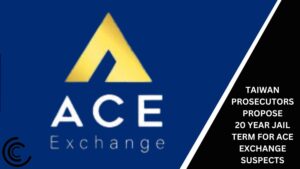Key Takeaways
- NASAA argued that digital assets should not given any special treatment when it comes to applying securities laws
- NASAA argued that Howey test was designed to be flexible enough to include all type of technological advancements
On October 10, the North American Securities Administrators Association (NASAA) stepped into the legal battle involving the United States Securities and Exchange Commission (SEC) and cryptocurrency exchange Coinbase, making a compelling argument in support of the SEC. The NASAA, a collective body of North American securities regulators, contended that digital assets should not be afforded special treatment when it comes to the application of securities laws.
In June, the SEC initiated a lawsuit against Coinbase, alleging that the publicly traded crypto exchange had violated federal securities laws. Coinbase vehemently rejected these claims, asserting that the digital assets and services it offered did not fall under the classification of securities, and that the SEC was overreaching in its regulatory approach.
Vincente Martinez, the general counsel for NASAA, put forth a convincing argument, stating that the SEC’s position was far from novel or extraordinary. According to Martinez, “The SEC’s theory in this case is consistent with the agency’s longstanding public position,” and it is well within the boundaries of established legal precedents. He emphasized that digital assets should not be considered as requiring special treatment under securities laws.
Martinez further invoked the “Howey test,” a legal standard used to determine whether an asset qualifies as a security. He argued that the Howey test was designed to be adaptable to accommodate various technological advancements in the securities markets, including those involving blockchain-based securities, echoing similar arguments previously made by the SEC.
In response to Coinbase’s attempt to invoke the “major questions doctrine,” which implies that executive agencies like the SEC need congressional approval for issues of significant political or economic relevance, Martinez countered this notion. He challenged Coinbase’s assertion that the “digital asset industry” constitutes a significant portion of the American economy, highlighting that most digital assets are primarily used for speculation and have limited practical economic utility.
The NASAA’s position aligns with the SEC’s view that the application of existing securities laws to digital assets does not require explicit authorization from Congress. The interpretation of the Howey test is expected to be a central point of contention in the ongoing lawsuit. Coinbase has argued that digital assets do not meet all the requirements of the test.
In closing, Martinez urged the court to reject Coinbase’s efforts to narrow and misapply established legal frameworks in order to evade the same regulatory obligations that apply to other participants in the nation’s securities markets.










